Traveling around Europe cheaply is entirely possible with the right planning and resources. TRAVELS.EDU.VN is here to guide you through the most budget-friendly options for exploring this incredible continent, providing savvy tips to make your travel dreams a reality. From affordable transportation to cost-effective accommodation, discover how to experience Europe without breaking the bank. Consider strategies like budget airlines, affordable accommodations, and utilizing local transportation to optimize your travel budget.
1. Discovering Europe Affordably by Bus
If you’re looking for the cheapest way to get around Europe, buses are an excellent choice. While they may not be the most luxurious option, they offer a significant cost saving compared to trains or planes, which means you will have more money for trying local food and wines.
FlixBus: FlixBus is a major player in the European bus travel market. They stand out because of their competitive pricing, extensive network, and user-friendly app. You can often find one-way fares for as little as 5 euros, making it a very appealing option for budget travelers. Plus, they provide a flexible cancellation policy where you can cancel or change your ticket up to 15 minutes before departure for a small fee.
Click here to scope out the best Flixbus deals
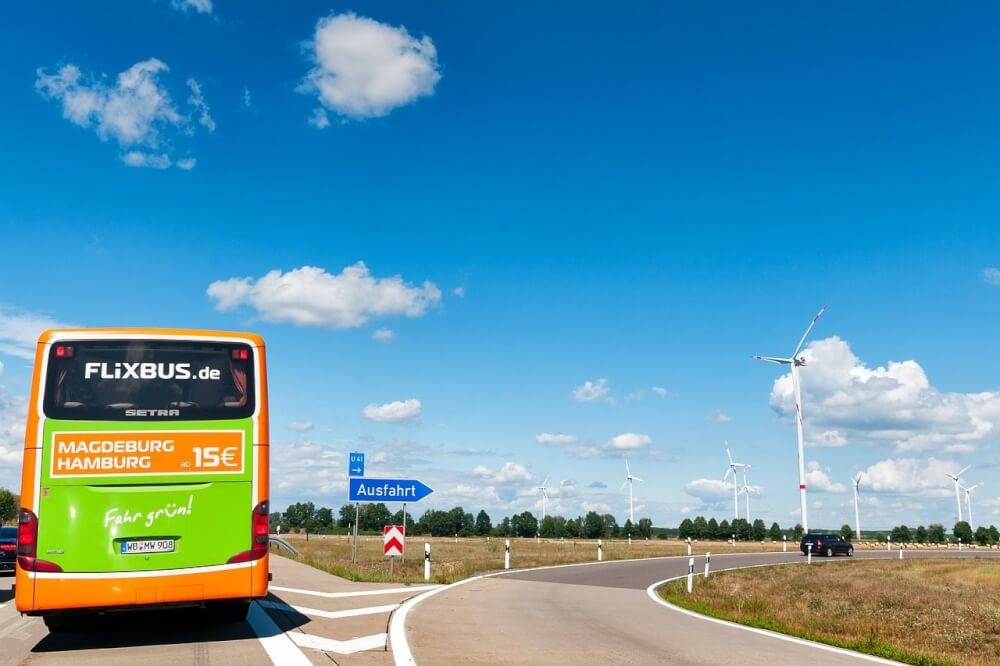 Flixbus offers affordable bus travel throughout Europe
Flixbus offers affordable bus travel throughout Europe
Other bus options to consider:
- Eurolines: Eurolines offers numerous routes throughout Europe and are known for their punctuality. However, their modification and cancellation policies are less flexible than FlixBus.
- Student Agency Bus (RegioJet): If your travels take you through the Czech Republic, RegioJet offers an affordable and luxurious bus experience with onboard movies and complimentary hot beverages.
- Megabus: While Megabus is still active in the UK, its European routes have been acquired by FlixBus. If you’re traveling within the UK, booking early can land you fares for as little as 1 pound.
- National Express: For travel within the UK, National Express is a reliable and professional option. Early bookings are essential to secure the best deals.
- Local bus lines: In the Balkans, local coach companies are a great way to get around. Inquire at local bus stations for affordable tickets, even on the day of travel.
2. Soaring Through Europe on Budget Airlines
Budget airlines are a popular and economical way to travel around Europe. These airlines offer incredibly low-cost flights that can sometimes be even cheaper than bus tickets.
With airlines like Ryanair, it’s possible to fly from Munich to London for as little as 10 euros if you book far enough in advance. To find the best deals, use flight comparison websites like Skyscanner.
Airlines to watch out for: Ryanair, EasyJet, WizzAir, Volotea, EuroWings, and Vueling. You can also use Omio to simultaneously search for flights, buses, and trains to find the cheapest option. Furthermore, consider using a VPN like Private Internet Access to check for deals from different locations.
Click here to scope out the best flight deals on Skyscanner
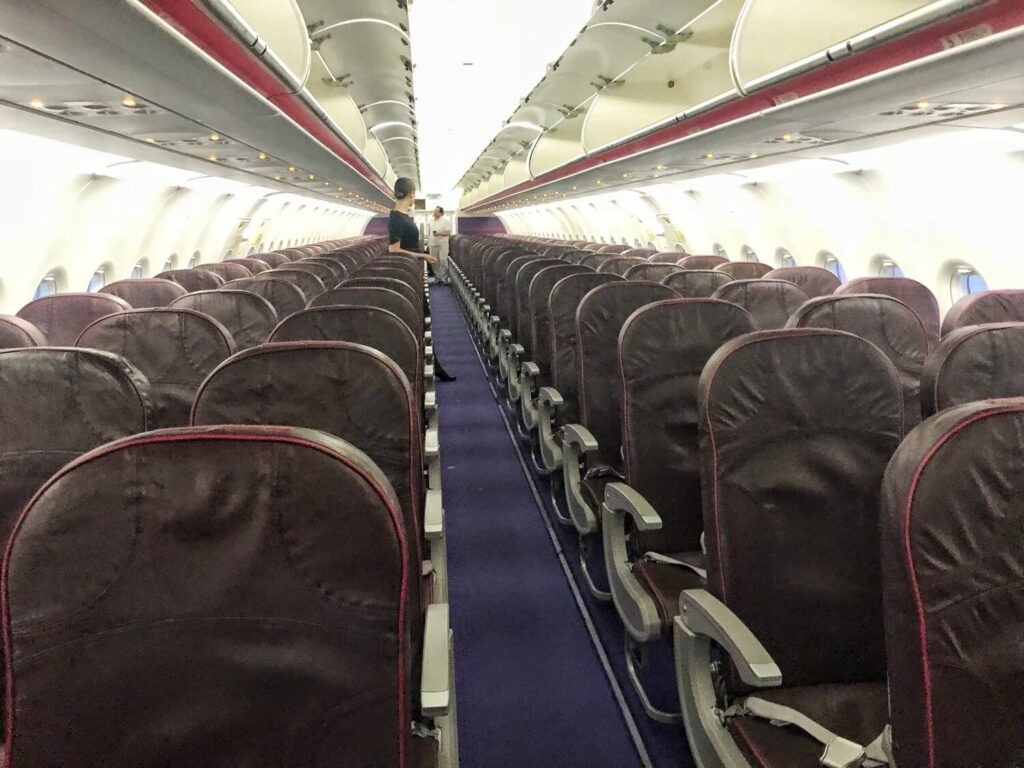 Wizz Air offers budget-friendly flights across Europe
Wizz Air offers budget-friendly flights across Europe
Important Note: Budget airlines provide basic services, meaning you might encounter limited legroom, additional fees for baggage, and costs for in-flight meals. Be sure to familiarize yourself with each airline’s rules to avoid surprises.
3. Carpooling Across Europe with BlaBlaCar
For a unique and cost-effective travel option, consider using BlaBlaCar.
What is BlaBlaCar? BlaBlaCar is a carpooling service that connects drivers with passengers heading to the same destination. Passengers contribute to gas and other expenses in exchange for a ride. The service uses a review system similar to Couchsurfing and Airbnb to ensure safety and reliability. Google Maps sometimes integrates BlaBlaCar rides into its search results, presenting it as an alternative to driving or public transport.
Click here to check out BlaBlaCar
 BlaBlaCar connects drivers and passengers for affordable travel
BlaBlaCar connects drivers and passengers for affordable travel
4. The Ultimate Budget Option: Hitchhiking
If you’re looking for the absolute cheapest way to travel around Europe, hitchhiking is it. While it may not be glamorous, it’s hard to beat the price of free.
Hitchhiking is more common and safer in some areas than others. In the Balkans, for example, it can be a viable way to get around. However, in Western Europe, it might be more challenging and time-consuming.
Consider these factors before hitchhiking:
- Safety: If you’re concerned about safety, especially when traveling alone, hitchhiking might not be the best option.
- Time constraints: Hitchhiking can be unpredictable, so if you have strict deadlines or a tight schedule, it’s not ideal.
- Flexibility: Be prepared for delays and detours, as hitchhiking requires a flexible mindset.
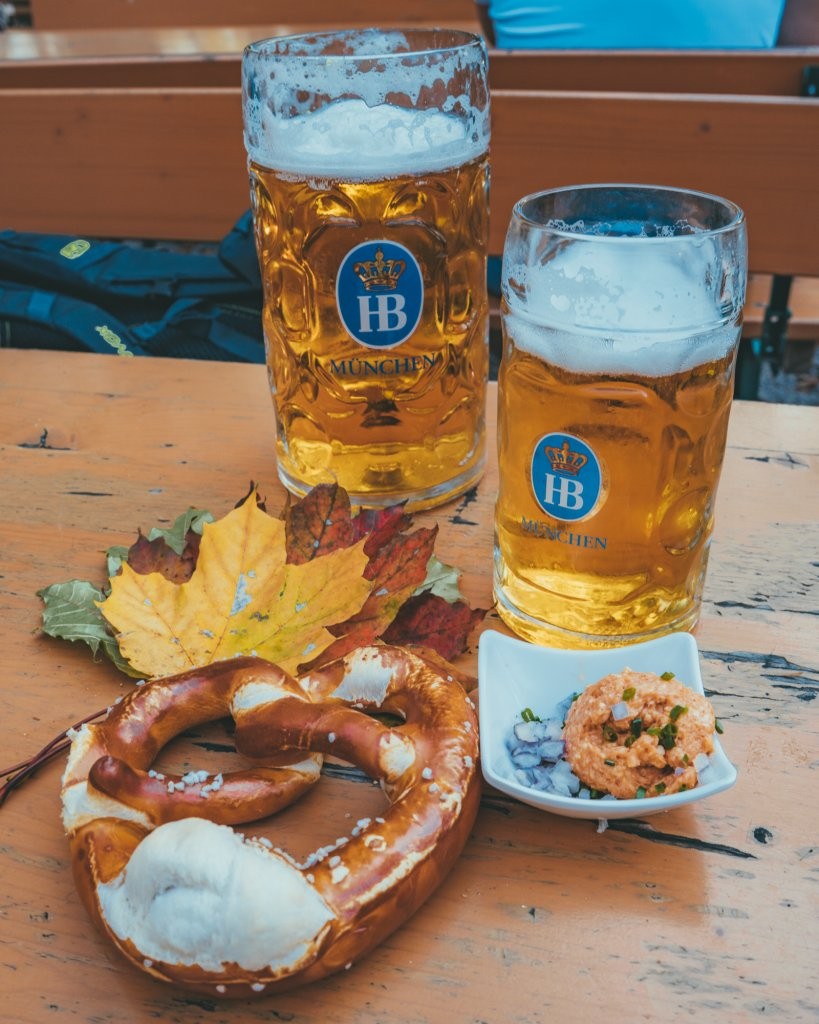 Hitchhiking can be a unique and affordable way to travel, though safety is key
Hitchhiking can be a unique and affordable way to travel, though safety is key
5. Traveling Europe by Train on a Budget
Traveling by train in Europe is an iconic experience, but it can be costly. However, with some smart planning, you can enjoy train travel without breaking the bank.
Tips for Affordable Train Travel:
- Book Early: Train tickets are often sold in batches, with the cheapest tickets available first. Booking as early as possible can save you a significant amount of money.
- Group/Regional Tickets: Many regions offer special deals for groups or for travel within specific areas. For example, in Bavaria, the Bayern Ticket provides unlimited travel for up to five people on the same ticket.
- Discounts: Many European train companies offer discounts for young travelers (under 26) and students.
- Train Passes: If you plan to travel extensively by train, consider purchasing a Eurail pass. These passes offer unlimited travel within a specific time period and can be more cost-effective than buying individual tickets.
Click here to browse the best deals on Eurail Passes
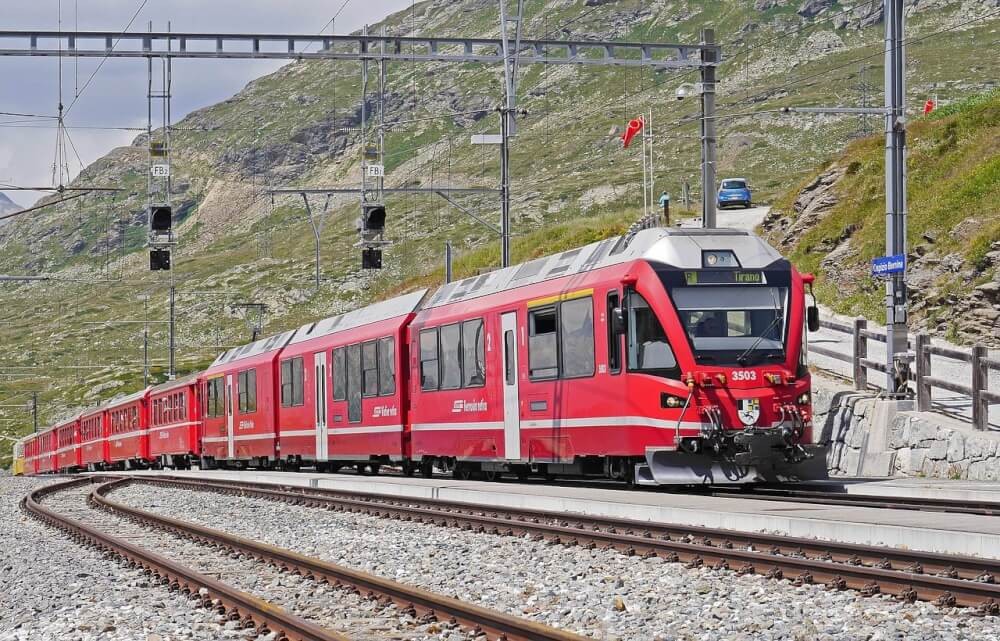 Train travel can be affordable with the right planning and discounts
Train travel can be affordable with the right planning and discounts
6. Exploring Europe by Car: Cost-Effective Tips
Renting a car in Europe offers the freedom to explore at your own pace, but it can come with hidden costs. While it’s unlikely to be the cheapest option, here are some tips to help you get the best deal.
Tips for Renting a Car on a Budget:
- Comparison Websites: Use websites like Expedia to find the most competitive prices for car rentals.
- Hidden Costs: Be aware of potential hidden costs such as insurance, GPS, multiple country fees, one-way drop-off fees, tolls, and highway vignettes.
- Coupon Codes: Use browser extensions like Honey to automatically find coupon codes for your car rental.
Click here to read my post full of hidden costs you should be mindful of
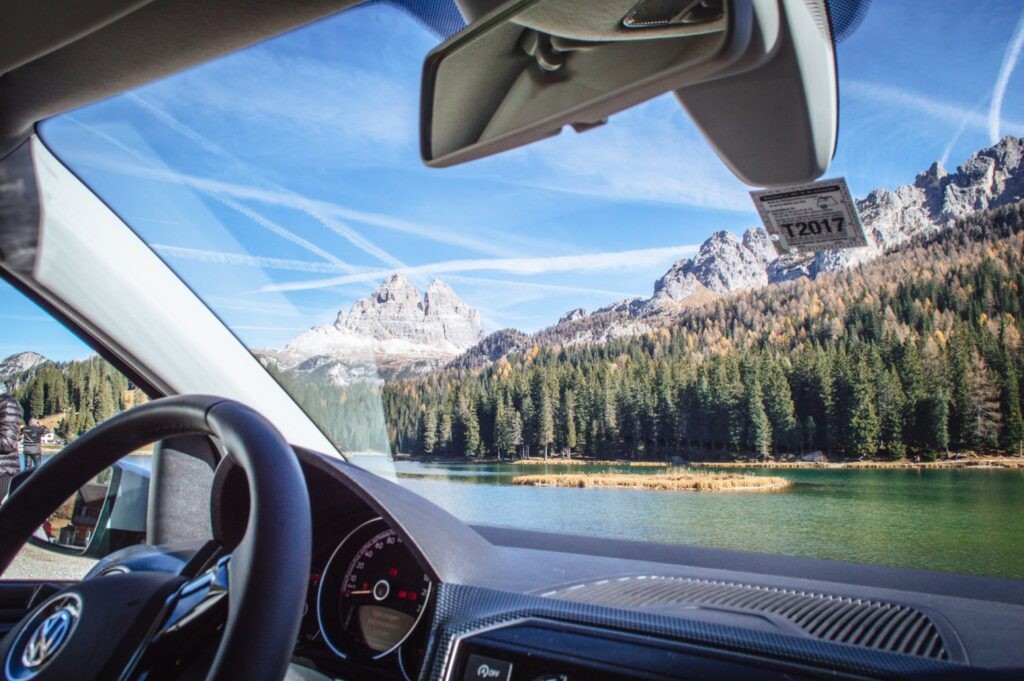 Renting a car in Europe offers flexibility but can come with hidden costs
Renting a car in Europe offers flexibility but can come with hidden costs
7. Mastering Accommodation Costs for Budget Travel in Europe
Accommodation is a significant part of any travel budget, but Europe offers many ways to reduce these expenses.
Hostels: Hostels are a favorite choice for budget travelers, providing dormitory-style rooms at significantly lower prices than hotels. They also offer opportunities to meet other travelers.
Airbnb: Airbnb provides a range of affordable options, from private rooms to entire apartments. This can be particularly economical if you’re traveling in a group.
Guesthouses and Budget Hotels: Look for guesthouses and budget hotels, which often provide basic amenities at reasonable prices.
Free or Low-Cost Accommodation: Consider options like Couchsurfing, where you can stay with locals for free, or camping, which can be very affordable, especially in areas with natural beauty.
Location: Staying slightly outside of city centers can significantly reduce accommodation costs, and many cities have efficient public transportation.
Timing: Traveling during the off-season or shoulder season can result in lower prices for both flights and accommodations.
8. Savoring Europe on a Shoestring: Food and Drink Strategies
Food and drinks can be a major expense while traveling, but with strategic choices, you can enjoy the local cuisine without overspending.
Local Markets and Supermarkets: Shopping at local markets and supermarkets allows you to buy food and prepare your own meals, saving money compared to eating out.
Street Food: Embrace street food! Europe is known for its delicious and affordable street food options, such as pizza in Italy, crepes in France, and kebabs in many countries.
Happy Hour and Daily Specials: Take advantage of happy hour deals and daily specials at restaurants and bars to enjoy discounted prices on food and drinks.
Picnics: Pack a picnic and enjoy your meal in a park or scenic spot. This is a great way to save money and enjoy the local atmosphere.
Free Tap Water: In many European countries, tap water is safe to drink. Carry a reusable water bottle and refill it to avoid buying bottled water.
Cook Your Own Meals: If you’re staying in accommodation with a kitchen, cook your own meals to significantly reduce your food costs.
9. Free Activities and Attractions in Europe
Europe boasts numerous free activities and attractions that allow you to experience the culture and sights without spending money.
Free Walking Tours: Many cities offer free walking tours, where local guides show you the main attractions and share interesting stories and insights.
Parks and Gardens: Explore the numerous parks and gardens, which offer beautiful scenery and a relaxing atmosphere.
Museums and Galleries on Free Days: Many museums and galleries offer free admission on certain days of the month or week. Check the local listings to take advantage of these opportunities.
Churches and Cathedrals: Most churches and cathedrals are free to enter and offer stunning architecture and historical significance.
Hiking and Nature Walks: Enjoy the natural beauty of Europe by going for hikes and nature walks in the countryside or mountains.
Free Events and Festivals: Look for free events and festivals that showcase local culture, music, and art.
10. Navigating Local Transportation Economically
Efficient and affordable local transportation is essential for budget travel in Europe.
Public Transportation: Utilize public transportation systems, such as buses, trams, and metro, which are often cheaper than taxis or rental cars.
City Passes: Consider purchasing city passes, which offer unlimited travel on public transportation for a set period of time.
Walking and Cycling: Whenever possible, walk or cycle to explore the city. This is a great way to see the sights and save money on transportation.
Bike Sharing Programs: Take advantage of bike sharing programs, which allow you to rent a bike for short periods of time at a low cost.
Avoid Taxis: Taxis are generally more expensive than public transportation. Avoid using them unless absolutely necessary.
Off-Peak Travel: Traveling during off-peak hours can sometimes result in lower fares on public transportation.
11. Essential Apps and Resources for Budget Travel in Europe
Numerous apps and resources can help you save money and plan your budget travels in Europe.
Skyscanner: For finding cheap flights.
Omio: For comparing prices of flights, trains, and buses.
BlaBlaCar: For carpooling options.
Booking.com & Hostelworld: For finding affordable accommodation.
Google Maps: For navigation and finding local transportation options.
HappyCow: For finding vegetarian and vegan restaurants.
WiFi Finder: For locating free WiFi hotspots.
XE Currency Converter: For converting currencies.
12. Maximizing Travel Deals and Discounts
Taking advantage of travel deals and discounts can significantly reduce your expenses.
Student Discounts: If you’re a student, take advantage of student discounts on attractions, transportation, and accommodation.
Youth Discounts: Many attractions and services offer discounts for young travelers (under 26).
Loyalty Programs: Join loyalty programs for airlines, hotels, and car rental companies to earn points and discounts.
Travel During the Off-Season: Traveling during the off-season can result in lower prices for flights, accommodation, and attractions.
Last-Minute Deals: Look for last-minute deals on flights and accommodation, but be flexible with your travel dates and destinations.
Package Deals: Consider booking package deals that include flights, accommodation, and activities for potential savings.
13. Packing Smart to Save Money
Packing smart can save you money on baggage fees and other travel expenses.
Travel Light: Pack only what you need to avoid baggage fees. Use a carry-on suitcase and a personal item to maximize your allowance.
Reusable Items: Bring reusable items, such as a water bottle, shopping bag, and travel utensils, to avoid buying them on the road.
Travel-Sized Toiletries: Buy travel-sized toiletries or use refillable containers to save space and weight.
Versatile Clothing: Pack versatile clothing items that can be mixed and matched to create multiple outfits.
Comfortable Shoes: Bring comfortable walking shoes to avoid blisters and foot pain.
Adapters and Chargers: Don’t forget to bring adapters and chargers for your electronic devices.
14. Financial Tips for Affordable European Travel
Managing your finances wisely is essential for budget travel in Europe.
Set a Budget: Create a detailed budget for your trip, including expenses for transportation, accommodation, food, activities, and souvenirs.
Track Your Spending: Use a budgeting app or spreadsheet to track your spending and stay within your budget.
Use Credit Cards with No Foreign Transaction Fees: Use credit cards that don’t charge foreign transaction fees to avoid extra charges on your purchases.
Inform Your Bank of Your Travel Plans: Inform your bank of your travel plans to avoid having your credit or debit card blocked.
Withdraw Cash from ATMs: Withdraw cash from ATMs rather than using currency exchange services, which often have higher fees.
Avoid Tourist Traps: Avoid eating and shopping in tourist traps, which often have inflated prices.
15. Free Resources and Support from TRAVELS.EDU.VN
At TRAVELS.EDU.VN, we are dedicated to making your European travel dreams a reality, regardless of your budget. We provide a range of free resources and support to help you plan an affordable and unforgettable trip.
Budget Travel Guides: Our website features detailed budget travel guides for various European destinations, offering tips on affordable accommodation, transportation, and activities.
Travel Deals and Discounts: We regularly update our website with the latest travel deals and discounts, helping you save money on flights, accommodation, and attractions.
Travel Planning Tools: Use our travel planning tools to create itineraries, track your spending, and find local transportation options.
Expert Advice: Our team of experienced travel experts is available to answer your questions and provide personalized advice for your trip.
Community Forums: Join our community forums to connect with other travelers, share tips, and ask for recommendations.
Contact TRAVELS.EDU.VN today at 123 Main St, Napa, CA 94559, United States, or call us at +1 (707) 257-5400. You can also visit our website at TRAVELS.EDU.VN for more information.
Why wait? Let travels.edu.vn help you design your dream European adventure without exceeding your budget. Contact us now for a personalized consultation, and allow us to provide you with the most cost-effective travel options available. We’re excited to help you realize your aspirations of exploring Europe!
FAQ: How To Travel Around Europe Cheaply
1. What is the cheapest way to travel between cities in Europe?
Buses are generally the cheapest way to travel between cities in Europe, with companies like FlixBus offering fares as low as 5 euros. Consider budget airlines for longer distances, but be aware of extra fees for baggage.
2. How can I find cheap flights within Europe?
Use flight comparison websites like Skyscanner and Omio to find the best deals on flights. Look for budget airlines like Ryanair, EasyJet, and WizzAir.
3. Is it better to buy a Eurail pass or individual train tickets?
It depends on your travel plans. If you plan to travel extensively by train, a Eurail pass can be more cost-effective. However, if you only plan to take a few train trips, buying individual tickets in advance may be cheaper.
4. How can I save money on accommodation in Europe?
Consider staying in hostels, Airbnb apartments, or guesthouses. Look for accommodation slightly outside of city centers to save money.
5. What are some free activities to do in Europe?
Take advantage of free walking tours, visit parks and gardens, and explore churches and cathedrals. Many museums and galleries offer free admission on certain days.
6. How can I save money on food and drinks in Europe?
Shop at local markets and supermarkets, try street food, and take advantage of happy hour deals. Pack a picnic and enjoy your meal in a park.
7. Is it safe to hitchhike in Europe?
Hitchhiking can be a viable option in some areas, but it’s essential to consider safety. It may be more challenging and time-consuming in Western Europe.
8. How can I use local transportation economically?
Utilize public transportation systems, such as buses, trams, and metros. Consider purchasing city passes for unlimited travel.
9. What are some essential apps for budget travel in Europe?
Skyscanner, Omio, BlaBlaCar, Booking.com, Hostelworld, and Google Maps are essential apps for budget travel in Europe.
10. What should I pack to save money on my trip?
Travel light to avoid baggage fees, bring reusable items, and pack versatile clothing items. Don’t forget adapters and chargers for your electronic devices.